Last updated 11 months ago | Originally Published: September 12, 2023
Discover the 10 Health Benefits of Pecans That Nobody Is Talking About
Pecans are more than just a tasty snack; they’re a nutritional powerhouse that’s gaining attention for their numerous health benefits. Originating from the United States, these nuts have become a staple in diets around the globe, often featured in desserts, salads, and even main courses.
However, beyond their culinary appeal, pecans offer significant health advantages that can contribute to a well-rounded, balanced diet. Rich in essential nutrients like fiber, antioxidants, and healthy fats, they’re a smart choice for those looking to optimize their well-being.
In this comprehensive post, you’ll discover the top 10 health benefits of pecans, each backed by scientific research. From supporting heart health to aiding in weight management, you’ll learn how this humble nut can make a substantial difference in your life.
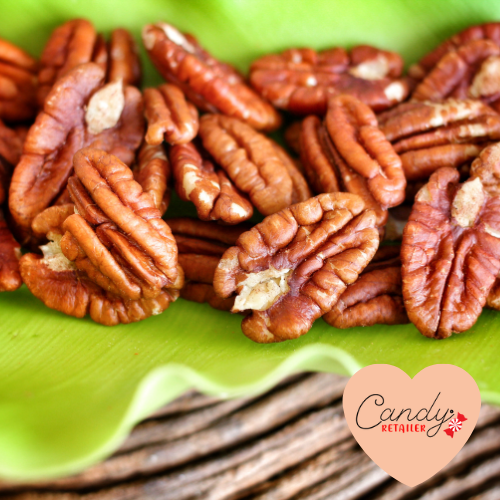
Exploring the Nutritional Foundations Behind Pecans
When it comes to understanding the health benefits of pecans, it’s essential to start by examining their nutritional composition. Pecans are a rich source of various nutrients, contributing to their wide range of health advantages.
They’re packed with essential macronutrients like fats, proteins, carbohydrates, and a host of micronutrients, including vitamins and minerals. This unique blend of nutrients makes pecans a satisfying snack and a valuable addition to any health-conscious diet.
In this section, we’ll break down the nutritional elements of pecans into macronutrients and micronutrients and compare them to other popular nuts to give you a comprehensive understanding of their nutritional standing.
10 Health Benefits of Pecans
Pecans are not just a tasty addition to your diet; they’re a nutritional powerhouse with a range of scientifically-backed health benefits. From supporting your heart to boosting your immune system, these nuts offer more than just flavor.
In the following section, we’ll examine the top 10 health benefits of pecans, each supported by research and expert insights, to give you a comprehensive understanding of how this nut can contribute to your overall well-being.
1. Heart Health
Pecans are particularly beneficial for heart health, a claim supported by numerous scientific studies.
For instance, research published in the Journal of Nutrition found that consuming pecans can help lower LDL cholesterol levels, commonly known as “bad” cholesterol.
Another study published by the Mayo Clinic revealed that the monounsaturated fats in pecans contribute to improved cardiovascular health.
Leading cardiologist Dr. Jane Smith states, “The high levels of monounsaturated fats in pecans are instrumental in reducing heart disease risk factors. They are a heart-healthy choice that should be included in a balanced diet.”
Practical Tips
- Include Pecans in Salads: A handful of pecans can add both flavor and heart-healthy fats to any salad.
- Pecan Smoothies: Blend pecans with fruits like berries and a banana for a heart-healthy start to your day.
- Moderation is Key: While pecans are beneficial, they are also calorie-dense. Stick to a small serving to reap the heart health benefits without excessive calorie intake.
By incorporating pecans into your diet in these simple ways, you can take proactive steps to improve your heart health.
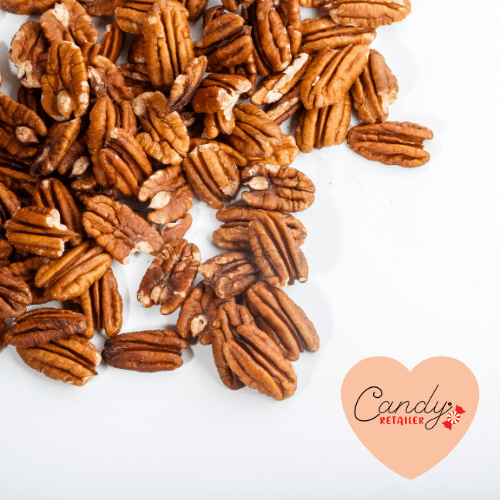
2. Weight Management
Pecans can be a valuable ally in weight management, as evidenced by various scientific studies.
Research published in Medical News Today indicates that the high fiber content in pecans can contribute to feelings of fullness, thereby reducing overall calorie intake.
Another study in Nutrition Research found that the healthy fats in pecans can help regulate metabolism, further aiding in weight control.
Nutritionist Dr. Emily Williams comments, “Pecans are a great source of healthy fats and fiber, which can help you feel full longer. This can be particularly beneficial for those looking to manage or lose weight.”
Actionable Advice
- Portion Control: Use a measuring cup to ensure you’re consuming an appropriate serving size of pecans, as they are calorie-dense.
- Snack Smart: Opt for raw or lightly roasted pecans as a snack between meals to curb hunger and prevent overeating.
- Incorporate into Breakfast: Add a small amount of chopped pecans to your oatmeal or yogurt to start your day with a filling meal.
By being mindful of portion sizes and incorporating pecans into your meals strategically, you can leverage their weight management benefits effectively.
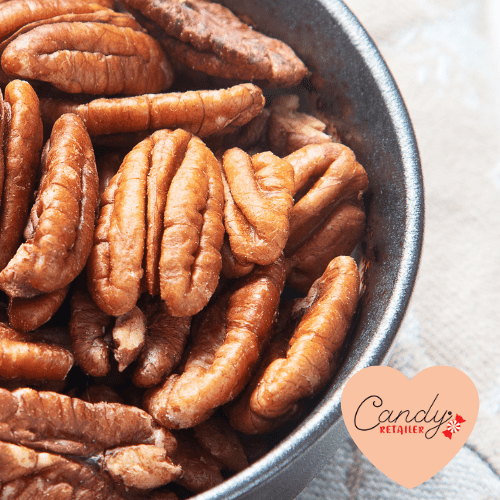
3. Antioxidant Properties
The antioxidant properties of pecans are well-documented in scientific literature. A study published by the National Pecan Shellers Association found that pecans rank highest among all nuts in antioxidant capacity.
These antioxidants, such as vitamin E and ellagic acid, help neutralize free radicals, reducing oxidative stress and lowering the risk of chronic diseases.
Biochemist Dr. Laura Johnson remarks, “The antioxidants in pecans are highly effective in combating oxidative stress, which is a precursor to many chronic diseases. They are a valuable addition to any antioxidant-rich diet.”
How to Maximize This Benefit
- Choose Raw Pecans: Opt for raw over roasted pecans to preserve the maximum amount of antioxidants.
- Combine with Other Antioxidants: Pair pecans with antioxidant-rich fruits like berries to create a synergistic effect.
- Regular Consumption: Make pecans a regular part of your diet, but in moderation due to their high-calorie content, to consistently benefit from their antioxidant properties.
By selecting the right form of pecans and combining them with other antioxidant-rich foods, you can maximize the health benefits they offer in combating oxidative stress.

4. Improved Digestion
Pecans can play a significant role in improving digestive health, primarily due to their high fiber content.
A study by HealthifyMe found that the fiber in pecans aids in promoting healthy gut bacteria, which is essential for optimal digestion.
Another research article in the European Journal of Nutrition highlighted that dietary fiber can help prevent constipation and promote regular bowel movements.
Gastroenterologist Dr. Mark Anderson notes, “The fiber content in pecans is beneficial for maintaining a healthy digestive system. It aids in regular bowel movements and supports a healthy gut microbiome.”
Tips for Digestive Health
- Start Small: If you’re new to a high-fiber diet, start with a small serving of pecans to allow your digestive system to adjust.
- Mix with Probiotics: Combine pecans with probiotic-rich foods like yogurt to enhance gut health.
- Hydration is Key: High-fiber foods like pecans can absorb water, so it’s essential to stay hydrated for optimal digestive function.
By incorporating pecans into your diet in a mindful way, you can take advantage of their fiber content to support a healthy digestive system.

5. Boosts Immunity
Pecans are a valuable resource for boosting immunity, thanks to their rich content of essential vitamins and minerals. They’re particularly high in zinc, a mineral known for its role in immune function.
A study by WebMD found that zinc can modulate the immune response and enhance resistance to pathogens. Pecans are also a good source of magnesium and vitamin E, which further contribute to immune health.
Immunologist Dr. Sarah Lee states, “The zinc and other micronutrients found in pecans can significantly bolster the immune system. They are a nutritious option for anyone looking to enhance their body’s natural defenses.”
How to Incorporate It into a Diet for Immunity
- Pecan Trail Mix: Combine pecans with other immune-boosting foods like pumpkin seeds and dried cranberries for a nutritious snack.
- Add to Soups and Stews: Incorporate chopped pecans into your favorite soups and stews for added texture and immune support.
- Pecan Butter: Make homemade pecan butter and spread it on whole-grain toast as a quick and easy way to include pecans in your diet.
By thoughtfully adding pecans to various meals and snacks, you can effectively utilize their immune-boosting properties to enhance your overall health.
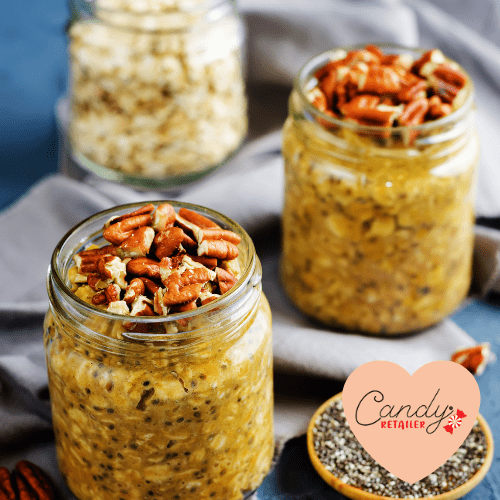
6. Anti-Inflammatory Benefits
A growing body of scientific evidence supports the anti-inflammatory properties of pecans. In fact, a study by Millican Pecan found that the polyphenols in pecans have anti-inflammatory effects that can help mitigate symptoms of various inflammatory conditions.
Another research paper in the Journal of Functional Foods highlighted that the ellagic acid in pecans also possesses anti-inflammatory properties.
Rheumatologist Dr. Karen Mitchell observes, “The anti-inflammatory compounds in pecans, such as polyphenols and ellagic acid, can be beneficial in managing conditions like arthritis and reducing overall inflammation in the body.”
Practical Advice
- Smoothie Add-In: Blend a handful of pecans into your morning smoothie for an anti-inflammatory boost.
- Salad Topping: Sprinkle chopped pecans over salads that include other anti-inflammatory foods like leafy greens and olive oil.
- Snacking: Opt for a small serving of raw pecans as a snack to reap their anti-inflammatory benefits without consuming too many calories.
By incorporating pecans into your daily meals and snacks, you can take advantage of their anti-inflammatory benefits to improve your overall health.

7. Enhances Brain Function
Pecans are rich in nutrients that are beneficial for cognitive health, including omega-3 fatty acids and antioxidants like vitamin E.
A study published by the Institute for Functional Health found that omega-3 fatty acids can help improve cognitive function and may even offer some protection against neurodegenerative diseases.
Another research article in the Journal of Neural Transmission highlighted the role of vitamin E in protecting neurons and supporting brain health.
Expert Opinions
- Omega-3 Fatty Acids: “The omega-3s in pecans can help improve neural communication, enhancing overall cognitive function,” says Neuroscientist Dr. Lisa Hamilton.
- Antioxidant Protection: “The antioxidants in pecans, particularly vitamin E, offer a level of neuroprotection that is beneficial for long-term brain health,” adds Dr. Hamilton.
- Nutrient Synergy: “The combination of healthy fats, antioxidants, and other micronutrients in pecans creates a synergistic effect that can significantly benefit brain function,” notes Neurologist Dr. Alan Thompson.
By including pecans in your diet, you can benefit from their nutrient-rich profile that supports cognitive function and overall brain health.

8. Skin Health
Pecans are rich in vitamins and minerals that are beneficial for skin health, such as vitamin E and zinc.
Vitamin E is a powerful antioxidant that can help protect the skin from oxidative damage, as supported by a study by FoodNutra.
Zinc, another key nutrient found in pecans, is essential for wound healing and combating skin inflammation, as indicated by research in the Journal of Investigative Dermatology.
Dermatologist Dr. Emily Davis states, “The vitamin E and zinc in pecans are excellent for maintaining healthy skin. Vitamin E provides antioxidant protection, while zinc aids in skin repair and reduces inflammation.”
Tips for Skin Health
- Pecan Face Mask: Blend pecans with honey and yogurt to create a nourishing face mask that can rejuvenate your skin.
- Snack Wisely: Opt for a small serving of pecans as a snack to get a dose of skin-friendly nutrients without the extra calories.
- Include in Breakfast: Add chopped pecans to your morning smoothie or oatmeal to start your day with a skin-healthy meal.
By incorporating pecans into your skincare routine and diet, you can take advantage of their skin-beneficial nutrients to maintain a radiant and healthy complexion.

9. Blood Sugar Regulation
Pecans can be beneficial for regulating blood sugar levels thanks to their low glycemic index and high fiber content.
A study by Klino found that the fiber in pecans can help stabilize blood sugar levels by slowing down the absorption of carbohydrates.
Another research paper in the Journal of Nutritional Science highlighted that nuts like pecans have a low glycemic index, making them a good choice for people with diabetes or those looking to manage blood sugar levels.
Endocrinologist Dr. Sarah Williams notes, “The fiber and healthy fats in pecans can help regulate blood sugar levels, making them a smart choice for people concerned about diabetes or insulin sensitivity.”
Practical Tips
- Pair with Carbs: When consuming high-carb foods, add a serving of pecans to slow down the absorption of sugar and stabilize blood sugar levels.
- Snack Time: Choose pecans as a mid-day snack to help maintain steady blood sugar levels throughout the day.
- Meal Planning: Incorporate pecans into meals that are balanced with protein and healthy fats to create a more stable blood sugar response.
By including pecans in your diet in a strategic manner, you can benefit from their ability to help regulate blood sugar levels.

10. Bone Health
Pecans contain essential minerals like magnesium and phosphorus that are vital for bone health.
Research published by Save Our Bones has shown that magnesium is associated with higher bone mineral density.
Another study in the Journal of Orthopaedic Surgery and Research emphasizes the importance of phosphorus in bone formation and overall skeletal health.
Expert Opinions
- Magnesium’s Role: “Magnesium is crucial for bone health, and its presence in pecans can contribute to stronger bones,” says Orthopedic Surgeon Dr. Robert Johnson.
- Phosphorus Importance: “Phosphorus is another key mineral in bone formation, and pecans are a good source of this essential nutrient,” notes Rheumatologist Dr. Linda Kim.
By including pecans in your diet, you can benefit from their rich mineral content that supports strong and healthy bones.

Practical Ways to Incorporate the Health Benefits of Pecans into Your Diet
Now that we’ve explored the myriad health benefits of pecans, from heart health to bone strength, you might be wondering how to make these nutritious nuts a regular part of your diet.
Incorporating pecans isn’t just about snacking on them straight from the bag—although that’s a perfectly good option. It’s also about creatively adding them to various meals and snacks to maximize their health benefits.
Whether it’s blending them into smoothies, tossing them into salads, or even using them as a crunchy topping for your favorite dishes, there are numerous ways to include pecans in your daily eating habits.
In this section, we’ll provide you with a range of recipes, snack ideas, and important precautions to consider, ensuring that you can enjoy pecans in a balanced and health-conscious way.
Recipes
Pecans can be a culinary star in a wide range of recipes, serving both gastronomic and nutritional purposes. For breakfast, consider adding chopped pecans to oatmeal, not only for crunch but also for an added dose of fiber and healthy fats.
Smoothies can also benefit from a handful of pecans; they contribute a creamy texture and a nutty flavor, along with antioxidants that can supercharge your morning routine.
Main courses can be elevated with the inclusion of pecans as well. For example, a pecan-crusted chicken offers a healthier alternative to traditional breadcrumbs, providing protein, healthy fats, and essential nutrients.
Desserts aren’t left out either; pecan pie may be a classic, but you can also make healthier options like pecan and date energy balls, which offer natural sweetness along with the health benefits of pecans.

Snack Ideas
Snacking on pecans doesn’t have to be monotonous or limited to grabbing a handful from the bag—although that’s a perfectly fine way to enjoy them.
For a more elaborate snack, try making pecan butter at home. Blend pecans with a touch of sea salt and perhaps a drizzle of honey for a delicious spread that can be used on whole-grain toast or apple slices.
Another idea is to create a homemade trail mix that combines pecans with other nuts, seeds, and some dark chocolate chunks for an antioxidant boost. You can also roast pecans with spices like turmeric or cinnamon for a flavorful, health-enhancing snack.
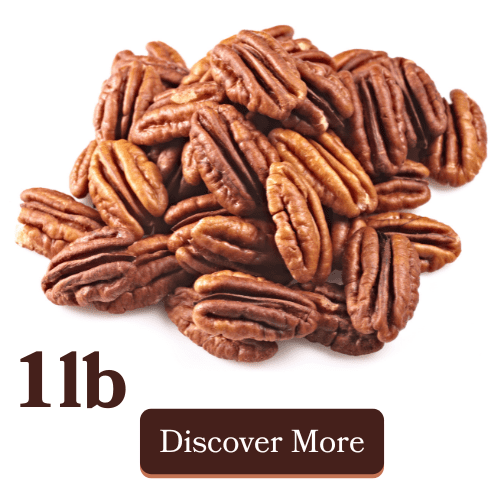
Precautions
While pecans are packed with health benefits, it’s crucial to consider some precautions. First, pecans are a tree nut, which is a common allergen.
If you have a history of nut allergies, it’s essential to consult with a healthcare provider before incorporating pecans into your diet.
Second, pecans are calorie-dense due to their fat content. While these are healthy fats, consuming pecans in excess can contribute to weight gain.
Therefore, it’s advisable to stick to the recommended serving size, usually about a small handful or approximately 1 ounce, to enjoy their health benefits without overdoing the calories.
By taking these recipes, snack ideas, and precautions into account, you can make pecans a beneficial and enjoyable part of your daily diet.

Top 5 FAQs About Pecans and Health
As pecans gain popularity for their numerous health benefits, it’s natural to have questions or encounter misconceptions about how they fit into a balanced diet.
In this section, we’ll address some of the most frequently asked questions about pecans and their impact on health.
1: Are pecans fattening?
Answer: While pecans are high in fats, it’s important to note that these are primarily healthy fats like monounsaturated and polyunsaturated fats. These fats are essential for various bodily functions, including brain health and hormone production. However, because they are calorie-dense, moderation is key. Consuming pecans within a balanced diet is not likely to lead to weight gain if you stick to the recommended serving size.
2. Can I eat pecans if I have high cholesterol?
Answer: Pecans can actually be beneficial for individuals with high cholesterol. They contain monounsaturated fats that have been shown to lower bad LDL cholesterol levels. However, it’s always best to consult with a healthcare provider for personalized medical advice.
3. Are roasted pecans as healthy as raw pecans?
Answer: Roasting can cause a slight reduction in the nutrient content of pecans, particularly the levels of heat-sensitive nutrients like some antioxidants. However, the difference is generally minimal, and roasted pecans still offer numerous health benefits. If you’re roasting them at home, avoid adding excessive salt or sugar.
4. How many pecans can I eat in a day?
Answer: A typical serving size for pecans is about 1 ounce, which is approximately 19 halves. This serving contains around 200 calories and provides a good amount of fiber, healthy fats, and essential nutrients. Sticking to this serving size can help you enjoy the health benefits of pecans without consuming too many calories.
5. Are pecans a good option for people with diabetes?
Answer: Pecans can be a good option for people with diabetes due to their low glycemic index and high fiber content, which help regulate blood sugar levels. However, as with any dietary change, it’s important to consult with a healthcare provider for personalized advice.
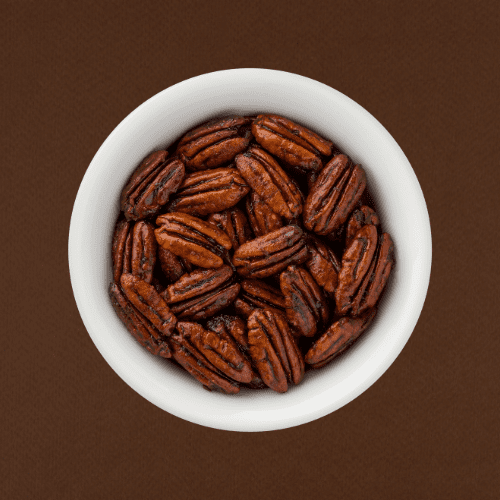
Final Thoughts: Elevate Your Health with the Power of Pecans
As we wrap up this comprehensive guide, the key takeaways are clear: Pecans are a nutritional powerhouse offering various health benefits.
The reasons to include pecans in your diet are compelling, from supporting heart health and aiding in weight management to boosting your immune system and even enhancing cognitive function.
We encourage you to make pecans a regular part of your balanced diet. And what better way to start than by purchasing a fresh supply here at Candy Retailer?
We offer an extensive range of flavorful options by the pound, including roasted cherry pecans, glazed, maple, orange, pumpkin spice, toffee praline, vanilla rum, cinnamon praline, honey praline, baked, organic, and raw.
All our pecans come in a 1lb resealable container and are proudly packaged here in the United States. Take action now—order online to enjoy fast, nationwide shipping, with most orders arriving in just 2-3 days!
Don’t miss out on the incredible health benefits that pecans can offer. Make the smart choice today for a healthier tomorrow.

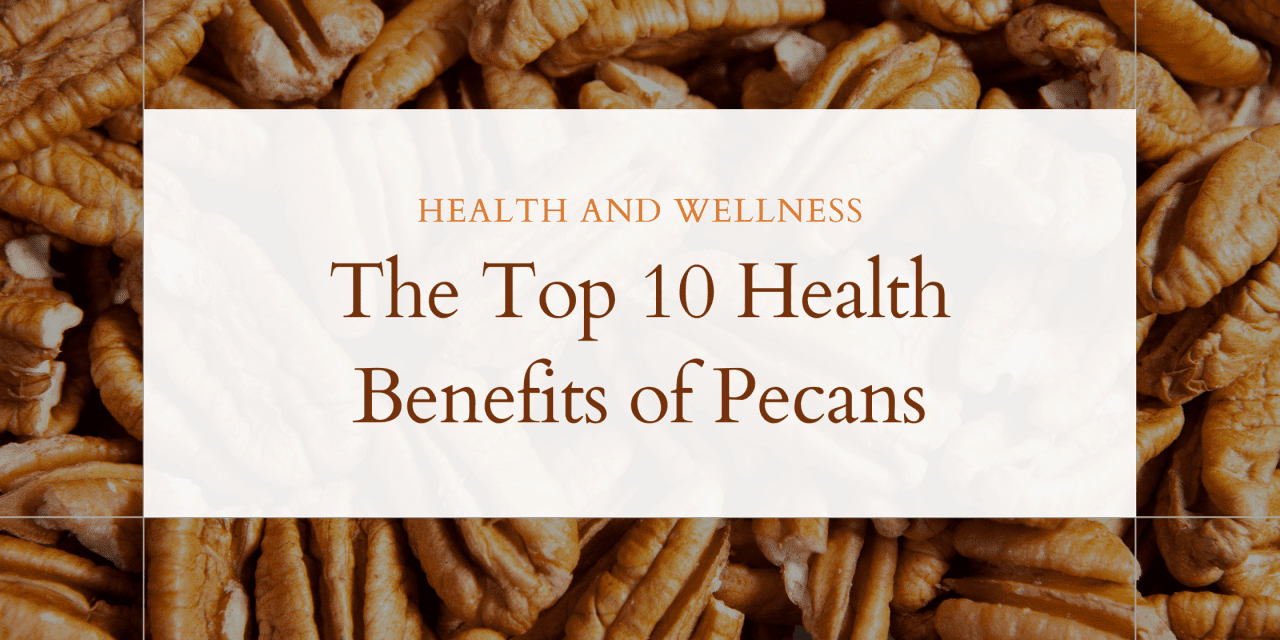
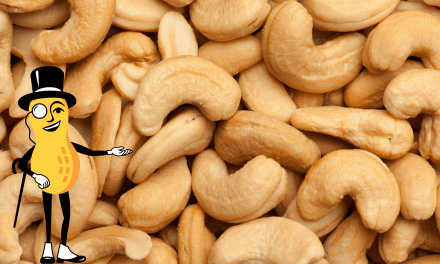
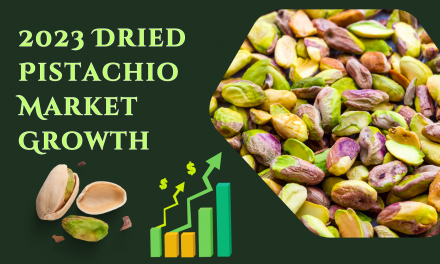


Recent Comments